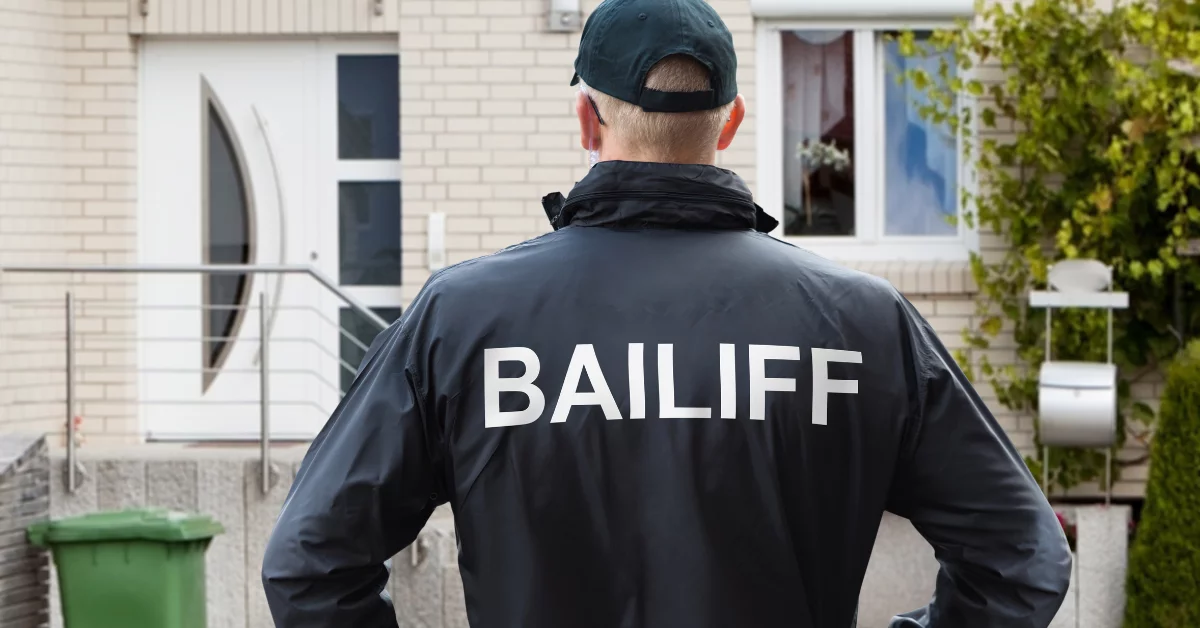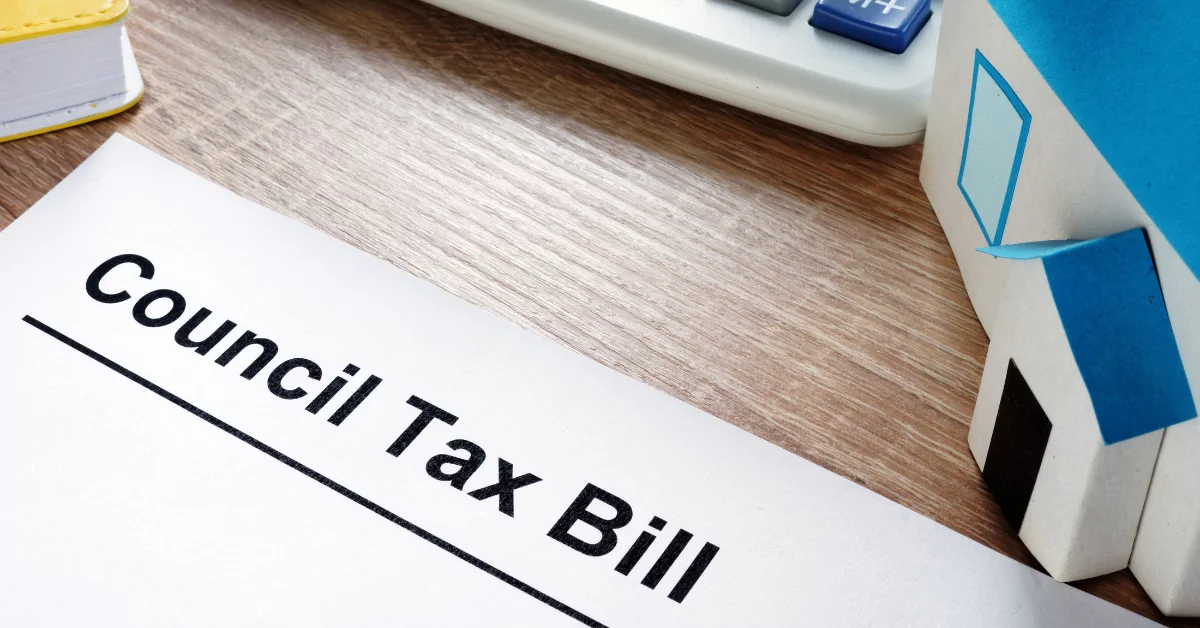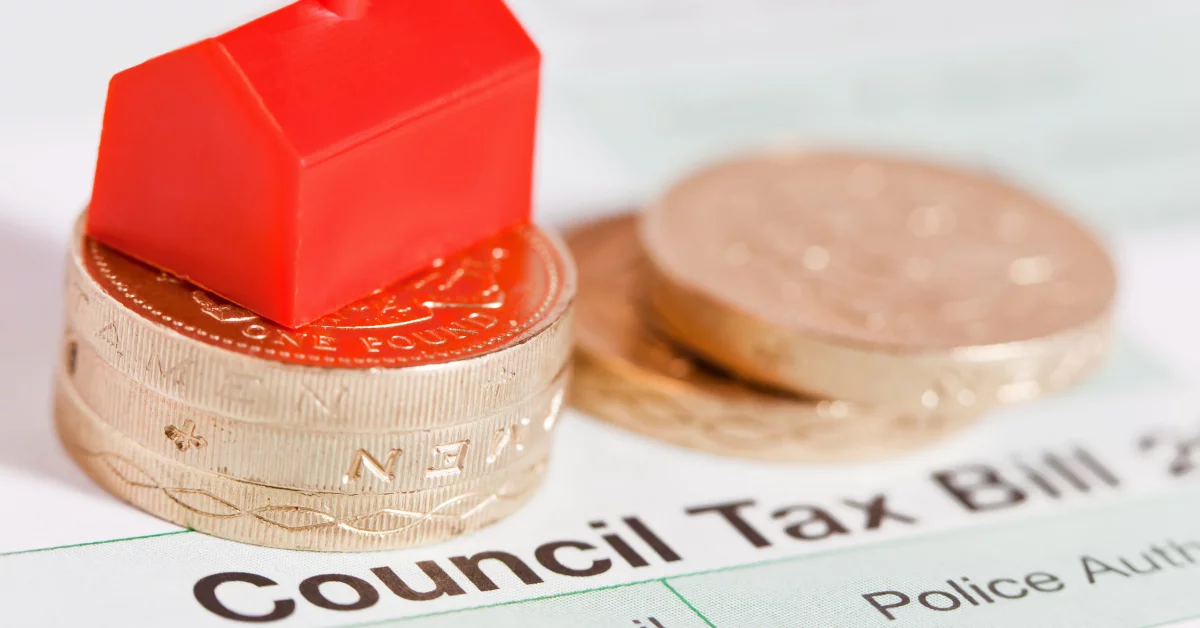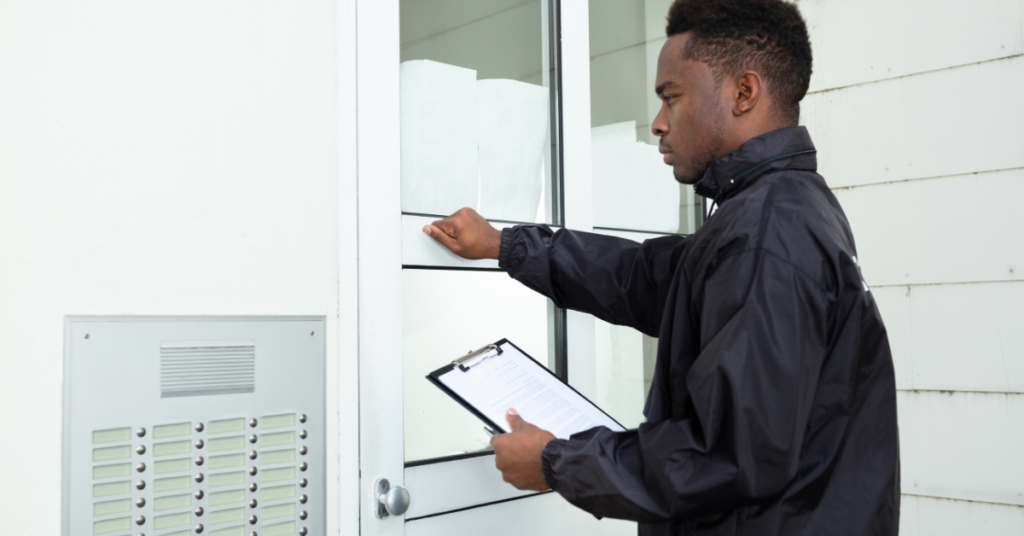Council tax is a local charge we all have to pay, but enforcement action could be just around the corner if you miss a payment.
Missing council tax payments can have serious consequences, including enforcement by the council.
Council tax bailiffs help councils get back what’s owed, but the process can be scary if you don’t know your rights and what’s involved.
This will answer your questions and give you a full understanding of council tax bailiffs, how to manage the process, and what to do if you’re struggling with council tax debt.
Council Tax Debt
Council tax debt can be a heavy load for individuals and families.
You need to know the basics of council tax debt, how it happens, the consequences of not paying, and the options for managing and paying it off.
Council tax debt occurs when an individual or household misses a council tax payment and goes into arrears.
The council can then take enforcement action to get the debt back, which can include sending bailiffs to your property.
Council Tax Liability and The Enforcement Agent

Council tax liability is the amount of council tax an individual or household has to pay. The local council sets liability based on the value of the property and the number of adults living in it.
Enforcement agents (bailiffs) may be used to collect unpaid council tax.
They can enter the property, seize goods, and sell them to recover the debt. However, they must follow strict rules and procedures to protect the debtor’s rights.
Enforcement Agents and Bailiffs
Enforcement agents and bailiffs are used interchangeably, but they mean the same thing.
These agents collect debts on behalf of the council, including council tax arrears. They must be certified and follow a strict code of conduct to act fairly and reasonably.
Enforcement agents can visit your property to collect the debt but must show ID and written authority from the council.
They can also take goods from your property to sell and get the debt back but must follow specific rules to ensure the goods are not essential items.
Council Tax Payments and Debt Recovery

Council tax can be paid in various ways, online, by phone or by post. You must pay on time to avoid arrears and enforcement action.
If an individual or household is struggling to pay council tax they should contact the council to discuss options, such as a payment plan or a reduction in the council tax bill.
The council may also offer debt recovery services to help individuals and households manage their debt.
What Are Council Tax Bailiffs?
Council tax bailiffs are legally appointed enforcement agents local councils employ to collect unpaid council tax.
Their main role is to enforce court orders for payment, which allows them to take non-essential goods and assets from a debtor.
Bailiff fees are structured into different stages of the bailiff’s process, including compliance, enforcement, and sale of goods.
These fees include charges for specific actions taken by the bailiffs, and recent regulations aim to make these fees clearer and more affordable for individuals in debt.
But bailiffs follow strict rules on what they can and can’t do, and knowing these rules can help you manage them better.
Bailiffs are usually hired after all other debt recovery options have been exhausted. When a debt remains unpaid after a court order, a council can apply for a ‘liability order’, which allows bailiffs to take specific actions.
This can include visiting a debtor’s property to take control of goods as a last resort to clear the debt.
When Are Council Tax Bailiffs Called In?

The council tax collection process is staged. Bailiffs are only involved in the later stages.
Here’s the progression from missed payments to enforcement action:
1. Missed Payment Notices
If you miss a council tax payment, the council will send a reminder notice within 14 days. This is your chance to pay before further action is taken.
2. Final Notice and Summons
If you don’t pay, a final notice and a summons for a court hearing will be sent to get a liability order. This order confirms you owe the debt and allows the council to pursue it further.
3. Liability Order
Once the council has a liability order, it has the right to collect the debt. Sometimes, the company may offer a final chance to pay before passing it on to bailiffs.
4. Bailiffs Engaged
If all else fails, the council may appoint bailiffs. You will receive a ‘Notice of Enforcement’ giving you a specific time frame (usually 7 days) to pay the debt before bailiffs can act.
This is the last chance to pay or make alternative arrangements.
A controlled goods agreement allows you to use certain goods while setting up a repayment plan. But breaking this agreement can result in bailiffs re-entering your property and taking the goods.
What Can Council Tax Bailiffs Do?
Knowing the powers and limitations of council tax bailiffs is key.
They have certain rights to recover debt, but their actions are strictly governed by law to protect debtors from unfair treatment.
Council Tax Bailiffs and Enforcement Agents’ Rights and Actions
Council tax bailiffs have the power to:
Visit Your Property
Bailiffs can visit your property to discuss the debt and ask for payment. If you don’t answer the door, they may leave your contact details for you to pay.
They can visit your property at reasonable times (6am-9pm) and can return until they have collected the debt or agreed on a payment plan.
Seize Goods Under a Controlled Goods Agreement
If a payment arrangement isn’t made, bailiffs can seize non-essential goods to clear the debt. Seizable items include electronics, luxury items, and other goods not deemed essential to daily living.
Peaceable Entry
They can enter through an open door but cannot force entry unless they are collecting a fine.
If they have already taken control of goods in your property, they may re-enter as long as they follow the legal guidelines.
Council Tax Bailiffs Limitations
There are certain limitations on council tax bailiffs to protect debtors:
No Forced Entry
They cannot break into your property or use force to get in.
Respect for Essential Items
Essential household items like basic furniture, kitchen appliances, bedding, and clothing are generally exempt from seizure. However, they cannot take items belonging to children or goods for work up to a certain value.
Reasonable Behaviour
Bailiffs must follow strict guidelines to treat debtors fairly. Harassment or intimidation is not allowed, and debtors can report bailiffs who act unprofessionally.
Your Rights When Dealing with Council Tax Bailiffs
Knowing your rights can make a big difference if you’re facing council tax bailiffs. Here are some key rights to bear in mind:
Right to Notice
Before bailiffs can visit, you must be given a ‘Notice of Enforcement’. This notice gives you a time frame (usually 7 days) to pay the debt or make a payment arrangement.
Right to Peaceable Entry
You have the right to refuse bailiffs entry if you have not previously allowed them in. Once bailiffs are in your property, they may return, but they cannot force entry if they have not done so before.
Right to Essential Items
Bailiffs cannot take essential household items or items for daily living, such as beds, a fridge, and basic kitchenware.
Right to Report Misconduct
If bailiffs act unlawfully or unprofessionally, you can complain to the bailiff company or escalate to an external body such as the Civil Enforcement Association (CIVEA).
How to Stop Council Tax Bailiff Action
If you’re struggling with council tax debt, there are several ways to prevent or stop bailiff action:
1. Pay the Debt in Full
The simplest way to stop enforcement is to pay the debt in full.
While this may not be possible for everyone, paying off the debt avoids further costs and stops the bailiffs from taking action.
2. Make a Payment Plan
Councils and bailiffs often negotiate payment plans. These plans involve making regular, affordable payments to clear the debt over time. By doing this early, you can prevent further enforcement action.
Also individuals on low income may be eligible for council tax reduction a form of financial support which varies depending on the local council in England and Wales.
Apply for Hardship Support for Council Tax Debt
If you cannot pay the debt due to financial hardship you may be able to apply for council support schemes or debt relief options. Many councils have schemes for people in financial difficulty.
4. Get Debt Advice
Talking to a debt advisor will give you tailored options and resources. Advisors can also negotiate with councils and bailiffs on your behalf.
Debt solutions such as an Individual Voluntary Arrangement can halt bailiff action, and provide legal protection moving forward.
5. Complain if Necessary
If bailiffs are being unprofessional, complaining can delay or stop further enforcement. Document any misconduct and seek advice if needed.
Other Enforcement Options
In addition to sending bailiffs the council may use other enforcement options to recover council tax. These can include:
Deductions from earnings: The council can ask an employer to deduct a portion of an individual’s earnings to pay the debt.
Deductions from benefits: The council can ask for deductions from benefits such as universal credit or income support.
Charging orders: The council can apply for a charging order which secures the debt against the property.
Bankruptcy: In extreme cases the council can petition for bankruptcy to recover the debt.
If an individual or household is facing enforcement or struggling to pay council tax seek advice from a debt advisor or Citizens Advice.
Council Tax Bailiffs
Many agencies manage council tax debt recovery each with their own policies and procedures. Here’s a list of some of the most common:
1. Marston Holdings
Marston Holdings is one of the UK’s largest enforcement agencies and are often contracted by local councils for council tax recovery.
They offer various options to help debtors manage their payments including flexible repayment plans.
Always check the credentials of a bailiff or enforcement agent as recent changes in the regulations have been made to ensure transparency and fairness in their actions.
Marston Holdings stress compliance and ethical practices in debt recovery with trained agents following strict protocols during enforcement.
2. Jacobs Enforcement
Known for a structured approach to council tax debt recovery Jacobs Enforcement work with councils across the country. Before enforcement they issue a Notice of Enforcement giving the debtor time to pay the debt or make arrangements to pay. Jacobs have a clear fee structure and transparent communication so the debtor knows the full amount of their outstanding balance.
3. Equita
Equita has many years of experience in council tax collection, parking fines and other local authority debts.
They work with debtors to negotiate payment solutions and often offer flexible options to prevent goods from being seized.
Equita agents take a customer-centric approach and prioritise clear communication to help individuals understand their repayment options and responsibilities.
4. Bristow & Sutor
Ethical debt collection is at the core of Bristow & Sutor’s business. They offer debtors the opportunity to create a repayment schedule that minimises disruption to daily life.
Bristow & Sutor agents follow professional standards and offer customer support to answer questions and talk through options with debtors.
FAQs
Can I Negotiate with Council Tax Bailiffs?
Yes, most bailiffs will negotiate a payment plan to settle the debt without asset seizure. The earlier you arrange an agreement, the more likely you will get a better outcome.
Can Bailiffs Take My Car?
Bailiffs can take your car if it’s deemed non-essential. But if your car is for work or a mobility car you may be able to apply for an exemption.
What Can’t Bailiffs Take?
Bailiffs can’t take essential household items like beds, basic furniture, and necessary appliances.
They can’t take goods belonging to other people in the household or items for your job (up to a specified value).
Can Bailiffs Force Entry to Collect Council Tax?
Council tax bailiffs can’t force entry if they haven’t been in your home before.
They can only use “peaceable entry,” meaning they must enter through an open door or with permission.
Summary
Facing council tax bailiffs can be stressful, but knowing your rights and options will help you manage the situation.
Whether you need to negotiate a payment plan, get financial advice or understand what bailiffs can and can’t do, taking proactive steps will help you resolve council tax debt.
Remember, ignoring the situation will lead to further action and higher fees, so dealing with council tax debt early is in your best interest.
If you’re unsure about anything, contact one of our friendly debt advisors for help and guidance.



